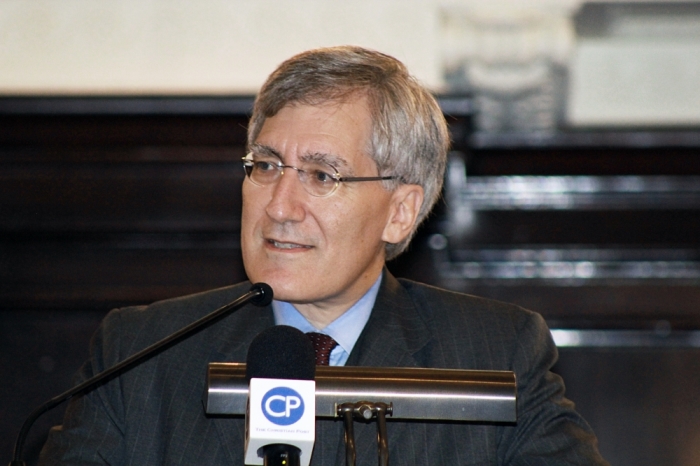Religious Freedom Is Key to Global Security, Robert P. George Says After Being Elected USCIRF Chairman

The United States Commission on International Religious Freedom elected on Thursday as Chairman Robert P. George, the McCormick Professor of Jurisprudence at Princeton University. George said that the defending religious freedom around the world is a key element for global security.
"I am honored to again serve as chair of USCIRF and work alongside my fellow commissioners in support of religious freedom and belief abroad," said George, who previously served as USCIRF chairman in 2013 and USCIRF vice–chairman in 2014.
"World events underscore the importance of this fundamental freedom. Religious liberty is an essential human right and a key element in the quest for regional and global security. It deserves a seat at the table with economic and security concerns as the U.S. and other nations conduct their affairs."
M. Zuhdi Jasser, president of the American Islamic Forum for Democracy, and Dean Eric P. Schwartz of the Hubert H. Humphrey School of Public Affairs at the University of Minnesota will serve as vice chairmans at USCIRF. They will work alongside George, who is also the director of the James Madison Program in American Ideals and Institutions at Princeton University.
USCIRF is a bipartisan government initiative which regularly reviews religious freedom concerns internationally and makes policy recommendations to the president, the secretary of state and Congress.
It has pressed President Barack Obama a number of times on human rights and religious persecution issues.
Last week it called on Pakistan to be branded as a "country of particular concern," which would allow sanctions to be imposed on the Pakistani government for its misuse of the blasphemy law.
USCIRF has said that the South Asian country's use of the blasphemy law surpasses that of any other nation, and is often used to target religious minorities, such as Christians. Blasphemy accusations have also regularly prompted mob violence at the accused, with people taking the law into their own hands.
"The blasphemy law on its face flatly violates both freedom of religion and freedom of expression. Worse still, Pakistan vigorously applies this law," USCIRF's Katrina Lantos Swett and Mary Ann Glendon said in an article for The National Interest.
"Nearly 40 Pakistanis are on death row or serving life sentences for blasphemy, a statistic unmatched anywhere in the world. Moreover, the weight of this law falls disproportionately on members of religious minority communities, such as Christians, Hindus, Sikhs, and Ahmadis."





























